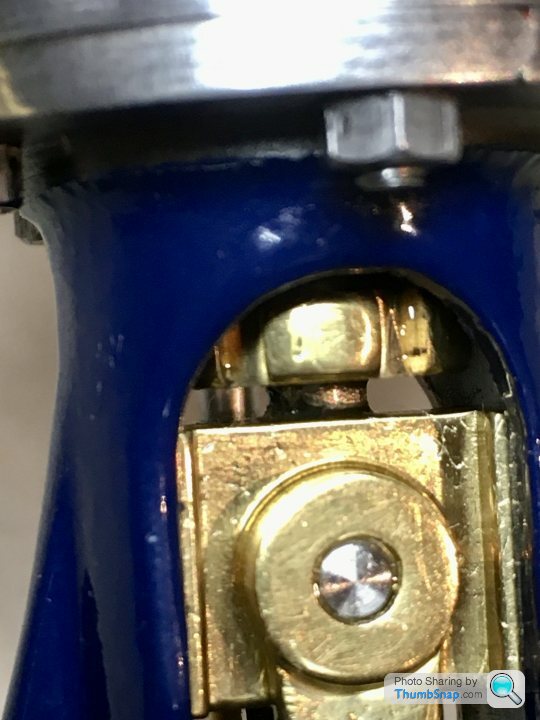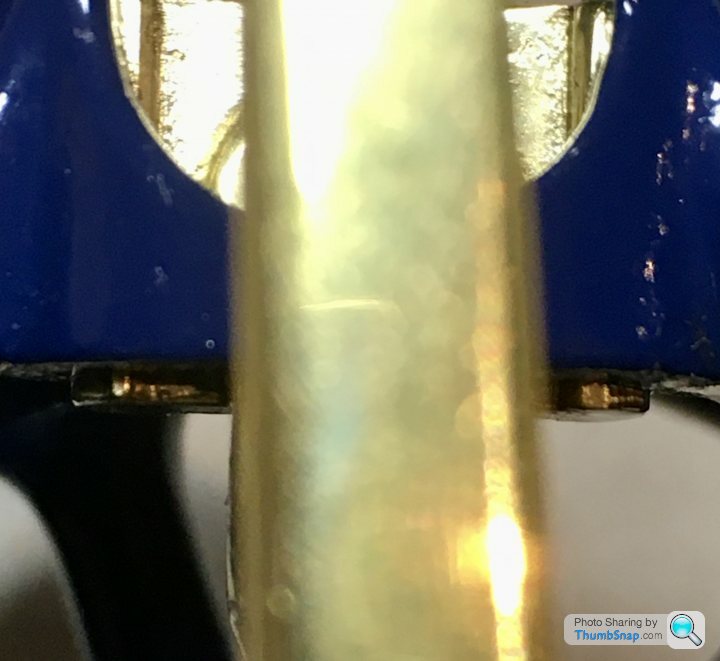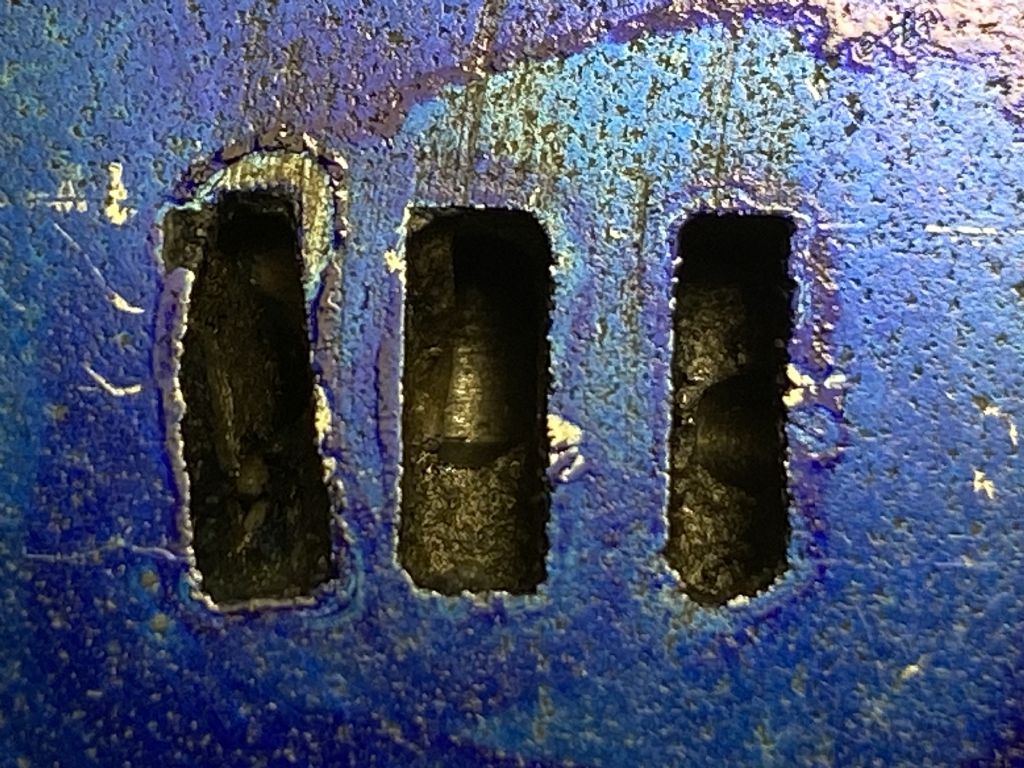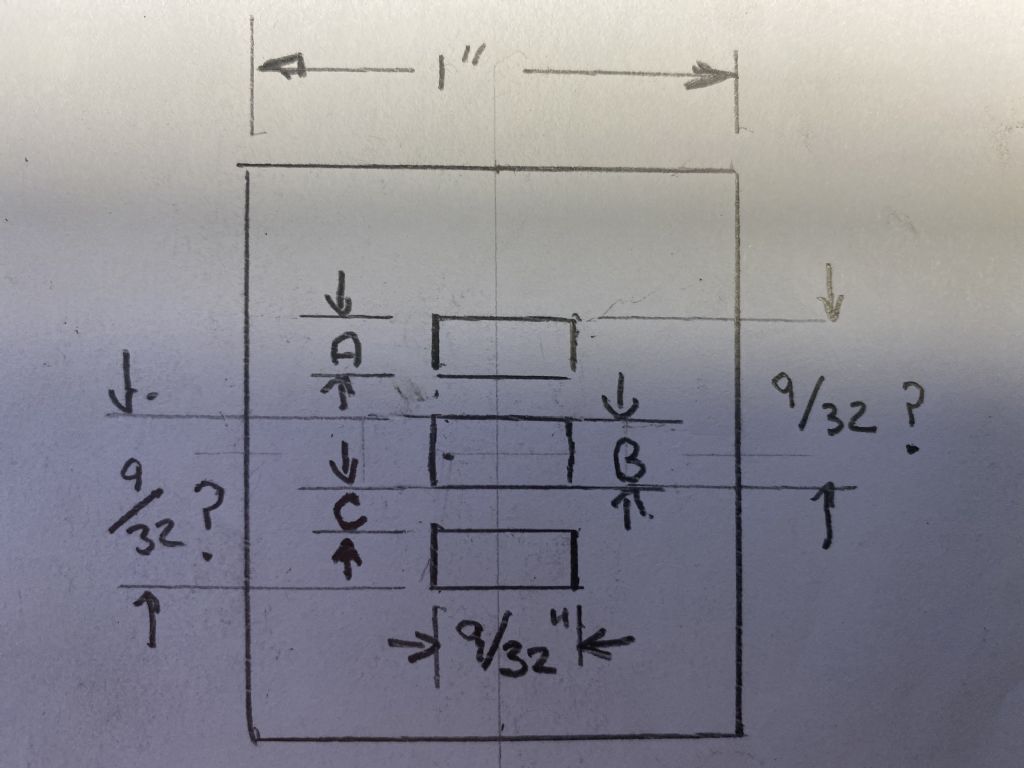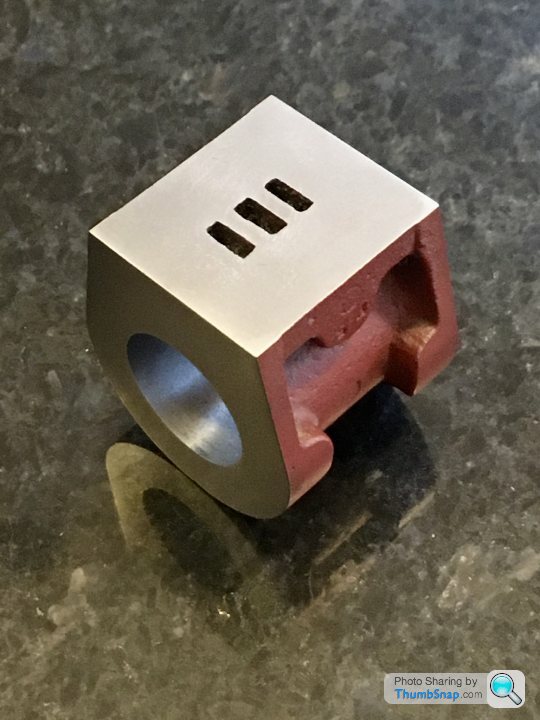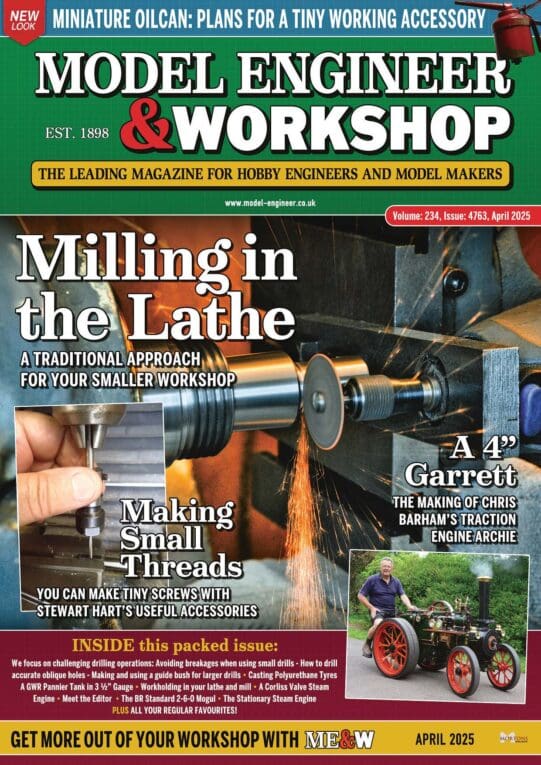Many moons ago I bought a built Stuart 10V on Ebay. When it arrived I had a quick look and due to work commitments it got put on one side. I have recently finished two of the Alyn Foundry engines and then saw Dr_GMJN's build of his Stuart 10V and this prompted me to take a look at the one bought a few years ago.
I quickly found a few problems. The main bearing bolts on one side were loose, so I tightened them up. Bad move, engine locked up completely. Decided to strip it completely, repair any issues, add a few bits and paint it.
The bearings were a major problem, they had been drilled completely out of alignment and needed 25 thou of shims underneath both the flanges on one of the bearings. Also found he had filed the base and the sole plate but not very squarely and the locations of the bolts for the main bearings were all over the place. Some things I would have to live with others would be fixed. New bearings extrusion ordered, along with valve chest cover, drain valves etc. along with small 7ba nuts. Also 5BA and 7BA taps and dies.
Whilst waiting for the bits to arrive I started on the steam chest. The slots in the steam valve for the fixing nut were filed but not square and to depth. Also the nut was tapped at an angle. Bit of work with a 3mm slot mill in the Cowells Mill saw the looking a lot better a new nut was fabricated and tapped. The steam chest had also been fitted back to front and had an out of square piece of gauge plate for a cover. By now the ordered parts had arrived and so I machined up the new cover. Started this on the Cowells with a flycutter but it was so chilled around the edges I migrated to the big mill and used a carbide facemill.
The cylinder and end covers appeared to have been made quite well and all I did with these was drill the cylinder for drain valves.
In one of my other post you can see a fixture plate I made to use initially on this engine. I was able to clamp the soles plate down and facemill the bearing platforms and the standard mounts to get them all level.

Then flipped the casing over and flattened the bottom. I used the same clamp but files the bar so that it would fit between the lower inside of the casting and and not be proud of the top of the base whilst being machined.
Colin
Jim K.


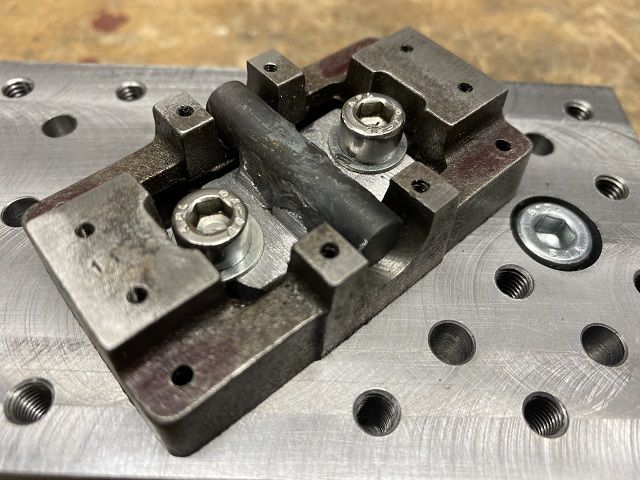
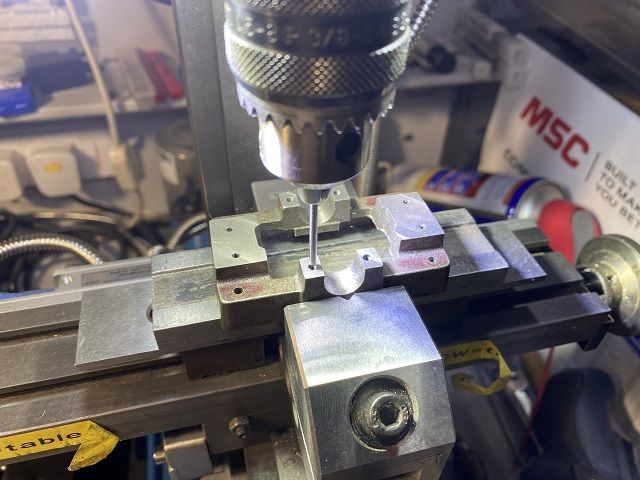
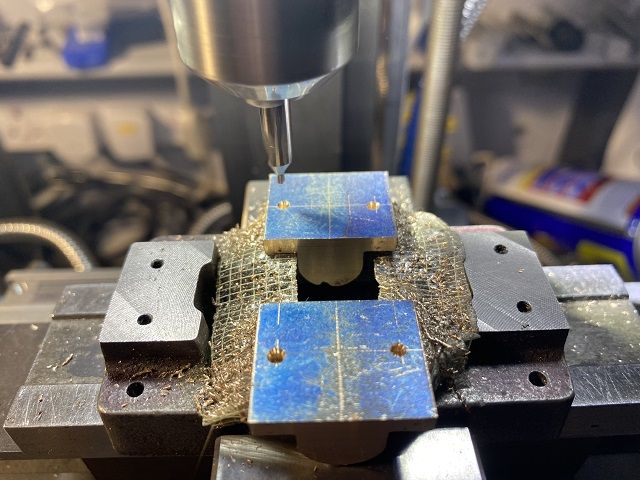
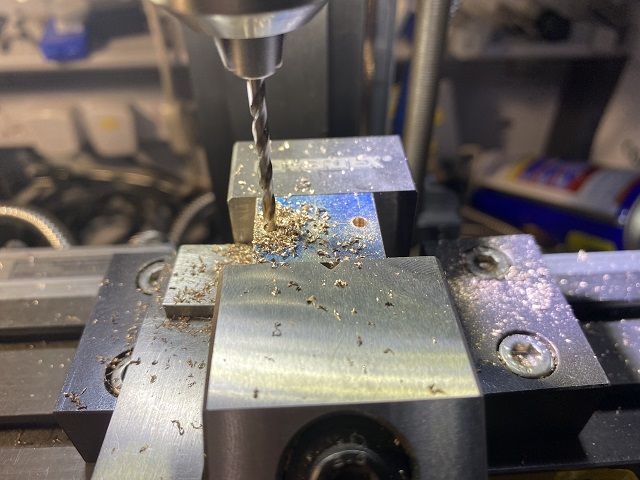
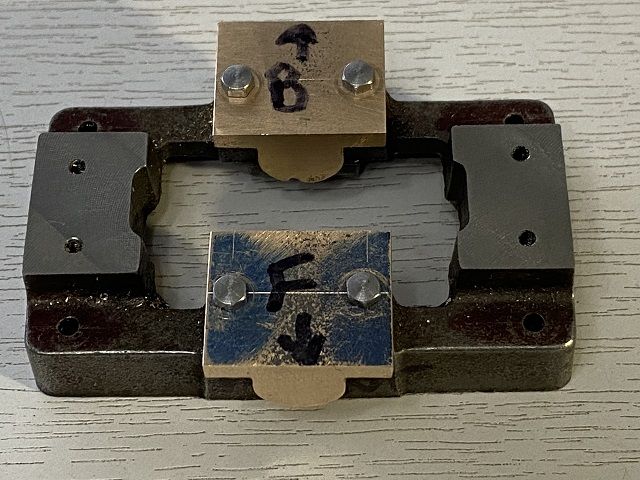
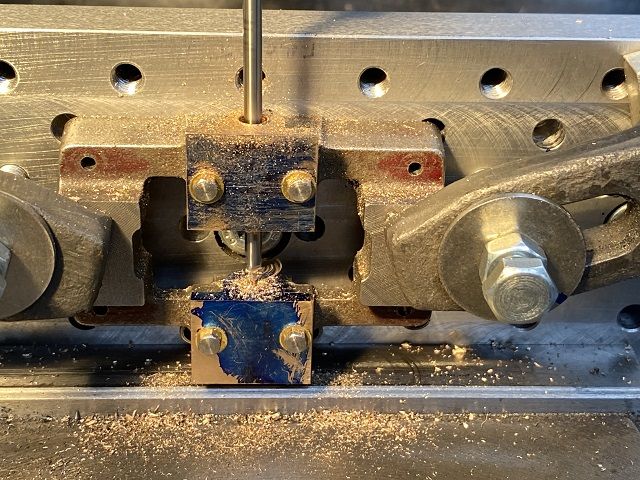
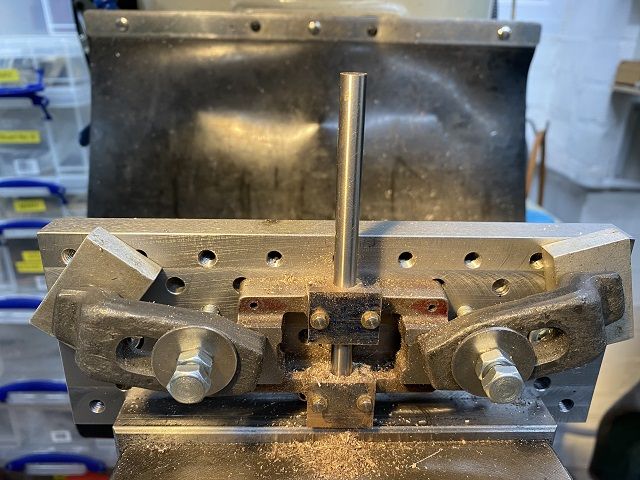
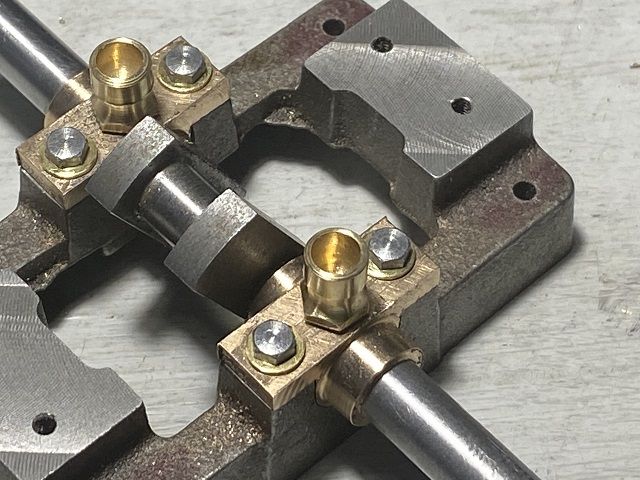
 not 45mm.
not 45mm.